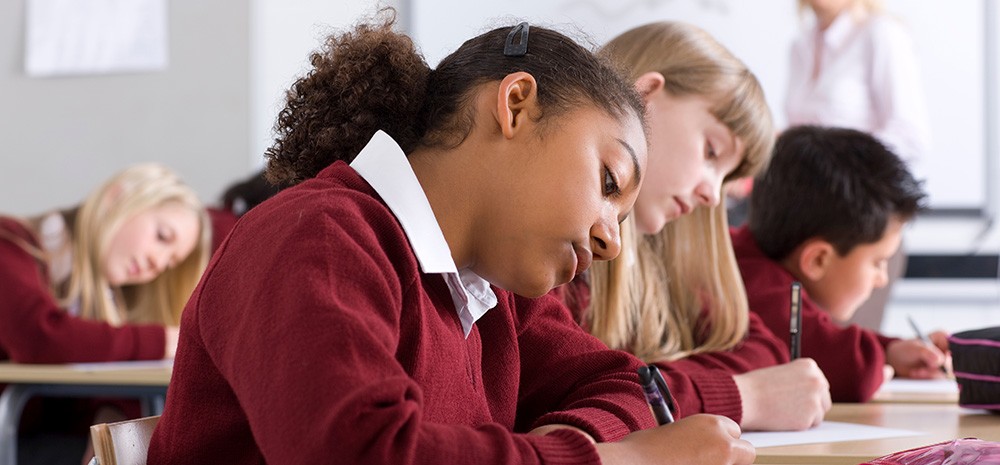
5 Top Tips to Help Children and Young People Prepare for Exams
There’s no doubt that if you’re a teacher, parent or student, there’s a good chance you’ve had at least one eye on upcoming exams since the start of the academic year in September. Whether it’s SATs, GCSEs or A-levels, exam season can bring with it a lot of stress, anxiety and pressure for all involved.
For teachers, this is a difficult time. They must balance their role as educators with their duty of care towards their students. For parents, exams may bring back memories of their own school days, and with them a mix of emotions.
Finding ways to support children and young people with their mental and emotional wellbeing as they prepare for exams is obviously vitally important, not only for their health, but also for making sure they’re in the right frame of mind to deliver the best exam performance they can.
Luckily, there are various things that teachers and parents can do to help children as they get ready to sit their exams. Listed below are 5 top tips for providing support and preparing pupils for exams.
Practice exam conditions
Many children and young people will sit mock exams in the run-up to sitting their actual exams, and there’s a good reason. As well as giving students an opportunity to put their learning into practice, the experience of being subject to exam conditions is a great exercise for helping children and young people feel more confident when they sit their exams for real.
While working in silence for an extended period of time might be a more unusual experience for younger children than students sitting their GCSEs or A-levels, sitting a mock exam is still a fantastic opportunity to practice their exam techniques. Working on answering questions in good time, not dwelling too long on sections that don’t reward it, and double checking and re-reading answers are all brilliant strategies to get into the habit of.
Sleep, hydration and rest
When we’re stressed it can be easy to lose sleep, not take in enough food and water and not give ourselves the downtime that our bodies and brains need to operate to the best of their abilities. For teachers and parents, exam season is a fantastic opportunity to model behaviours which are conducive to good mental health, and exercise self-care and understanding of one’s own needs.
Setting and sticking to sleep schedules, maintaining hydration and taking deserved time out from revision are all to be encouraged, not only during revision but also prior to exams themselves. According to research carried out by the universities of East London and Westminster, students who take a bottle of water into their exams score, on average, 5% higher than those who don’t.
Help children learn strategies to manage stress
Stress and anxiety impact everyone at some point in their lives, and given the importance placed on exam performance, it’s no surprise that exam season can be challenging for children and young people. Giving children the knowledge and skills to recognise their own needs and emotions is invaluable for their personal development. It’s important that teaching staff have the confidence and ability to recognise stress and anxiety in children at a young age and help them develop strategies to effectively manage these emotions.
Our course, a Certificate in Understanding Anxiety and Stress in Children and Young People, recognises the responsibility that all staff have to look after the mental health and wellbeing of children and young people in their provision. Developed by Anna Bateman, mental health and wellbeing expert who works in an advisory role for the DfE, this Essential CPD course provides you with the knowledge and skills to identify, respond to and develop preventative strategies around anxiety and stress to support pupils.
There’s no one-fits-all strategy
As with most things, there’s no one way that young people and children may find they best revise, and encouraging them to find out what works for them can be beneficial. Indeed, it may be best if students are exposed to a wide range of revision methods, including peer review, fun quizzes, games and more traditional methods.
Our webinar on implementing effective preparation and revision strategies provides leaders, teachers and practitioners with advice and practical guidance on helping pupils make the most of revision periods and prepare for exams. Among other topics covered, is the notion that revision should be an active, rather than passive activity, which organises information in a way that is more easily retrievable.
Past papers are your friends!
When it comes to helping students know what to expect from exams, past papers are a brilliant resource that can give strong indications as to the types of questions they are likely to face. Studying past papers not only helps pupils feel more prepared, but also helps identify areas in which they may not feel as confident and therefore may need more focus.
It’s important to mention though, that while it may be possible to get clues as to what this year’s exam might contain based on topics that were not present in previous years, this is not an exact science. No amount of speculation can replace gaining a wide knowledge of a subject and being prepared for any eventuality that an exam might come up with.